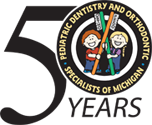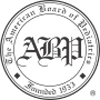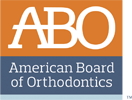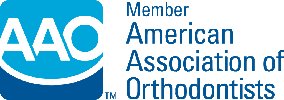INFO FOR INFANTS AND TODDLERS
Teething Infants – What to Expect
Normally the first tooth erupts between ages 6 to 12 months. Gums are sore, tender and sometimes irritable until the age of 3. Rubbing sore gums gently with a clean finger, the back of a cold spoon or a cold, wet cloth helps soothe the gums. Teething rings work well, but avoid teething biscuits—they contain sugar that is not good for baby teeth.
Baby Bottle Tooth Decay
While your baby is teething, it is important to monitor the teeth for signs of baby bottle decay. Examine the teeth, especially on the inside or the tongue side, every two weeks for dull spots (whiter than the tooth surface) or lines. A pacifier dipped in something sweet or a bottle containing anything other than water and left in an infant’s mouth while sleeping can cause decay. This happens because sugar in the liquid mixes with bacteria in dental plaque forming acids that attack the tooth enamel. Each time a child drinks liquids containing sugar, acids attack the teeth for about 20 minutes. When awake, saliva carries away the liquid. During sleep, the saliva flow significantly decreases and sugary liquids pool around the child’s teeth for long periods, covering the teeth in acids and making the teeth prone to decay.
Primary (or, “baby”) teeth – Why Are They Important?
The primary, or “baby,” teeth play a crucial role in dental development. Without them, a child cannot chew food properly and will have difficulty with language development. Primary teeth are also vital to development and maintenance of jaw size and shape and for guiding the permanent (secondary) teeth into place when they start to replace the primary teeth around age 6.
Since primary teeth hold space for and eventually guide the permanent teeth into place, children with missing primary teeth or who prematurely lose primary teeth may require a space maintainer, a device used to hold the natural space open. Without a space maintainer, the teeth can tilt toward the empty space and cause permanent teeth to come in crooked or prevent them from erupting at all. The way your child cares for his/her primary teeth plays a critical role in how he/she treats the permanent teeth. Children and adults are equally susceptible to plaque and gum problems—hence, the need for regular care and dental checkups.
Infant Tooth Eruption Timetable
A child’s teeth actually start forming before birth and show up in the mouth as early as 4 months of age (though this is quite variable and some first teeth do not arrive until age 1 or later) — the lower central incisors are first, then the upper central incisors. The remainder of the 20 primary teeth typically erupt by age 3, but the exact timing and order varies.
Permanent teeth begin eruption around age 6, starting with the first molars and lower central incisors. This process continues until around age 12 when the 2nd molars erupt. If the wisdom teeth are present, they usually try to erupt between 17 and 21 years of age. Adults typically keep 28 secondary (permanent) teeth—32 is the normal total for human beings but the wisdom teeth seldom fit in the back of the jaws.
A Child’s First Dental Visit – Around Their First Birthday
The most important part of this visit is getting to know and becoming comfortable with a doctor and his staff and exposing your child to the sights, sounds, and experiences associated with visiting the dentist. A pleasant, comfortable first visit builds trust and helps put the child at ease during future dental visits. Your child will sit in mom or dad’s lap in the exam room and you will lean your child back for the dentist to take a quick peak. We encourage you to talk about the visit before and after subsequent visits with your little one to reinforce the experiences are positive.
Good Diet and Healthy Teeth
The teeth, bones and soft tissue of the mouth require a healthy, well-balanced diet. A variety of foods from the five food groups helps minimize (and avoid) cavities and other dental problems. Snacks are usually the most dangerous foods for your childs teeth. When possible, healthy choices should be made and when sugary foods are chosen, it is best if the teeth can be brushed or at least rinsed with water afterwards.












